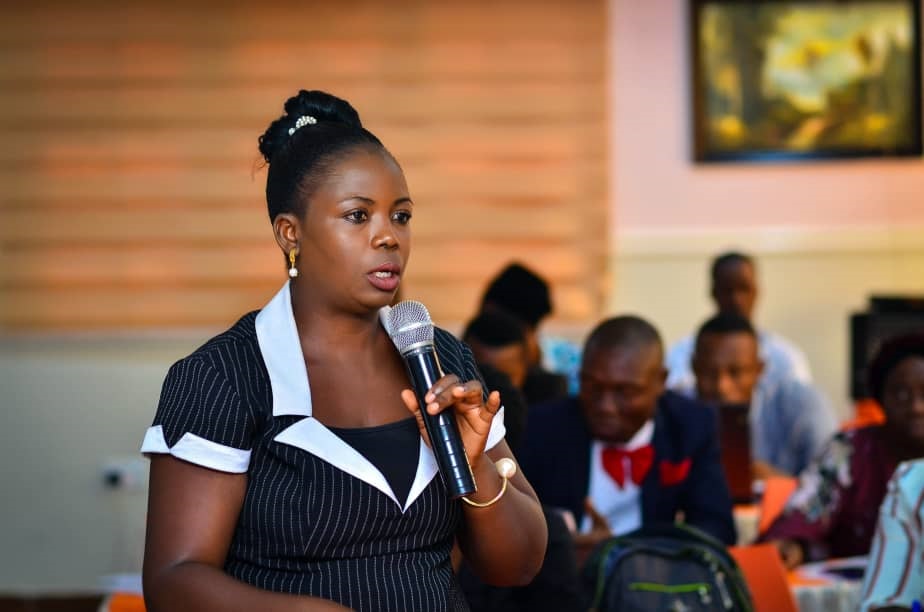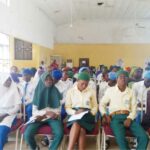In this interview with our reporter, a deaf girl-child advocate, counsellor and Founder of Deaf Girl-Child Initiative (DGCI), Ms. Funmilayo Obasa, speaks on why girls and women with hearing and speaking impairments need to develop self-esteem to overcome daily challenges and live normal lives, as the world marks the International Day of the Girl-Child.
DAILY TRUST: What inspires the establishment of the Deaf Girl-Child Initiative (DGCI)?
OBASA: The initiative was formed to help deaf girls live decent lives as well as help them to cope with and overcome various challenges bedevilling them such as parental negligence and societal discriminations due to their disability etc.
DAILY TRUST: How did you cope growing up as a deaf girl to the woman you’ve become today?
OBASA: Growing up was tough, though I was born hearing. But I lost my hearing partially due to an illness at a young age. After I survived the illness, I face series of challenges on daily basis as I could no longer hear well, though I could speak well. I almost committed suicide several times, until I met someone who encouraged me positively and I was able to attend school and even obtained my university degree in a conventional school, Ekiti State University.
DAILY TRUST: How were you able to overcome your disability challenges?
OBASA: First, it’s by the grace of God. Then, through self-confidence, focus, determination and hard work, I was able to live a normal live daily.
DAILY TRUST: How is your NGO helping deaf-girls in the society?
OBASA: We support deaf girls who may want to drop out of school, as a result of financial challenges, to remain in school by sponsoring their education. We also train them on sexual purity, and empower some with vocational skills, especially those that couldn’t cope academically in a bid to give them a better tomorrow. Coping with life’s challenges would be easier when they can fend for themselves.
DAILY TRUST: Since you started the DGCI over a year ago, how were you financing some of the programmes and projects you’ve done?
OBASA: Some of the programmes done were financed by myself, with supports from friends of like-minds. I have a couple of friends who offer their supports; some donated to pay the tuition fees of one or two of the deaf girls we’re sponsoring in school. Some donates school materials like exercise books, school bag, school sandal, etc. We’re open to more sponsorship and donations from other individuals and corporate organisations as well.
DAILY TRUST: What do you think are the peculiar challenges of the deaf-girl child?
OBASA: Deaf girls, most time, look down on themselves thinking that they can’t make it in life due to their inability to hear others. I used to have same feelings too when I newly became deaf. I have never seen myself as somebody who would fight the cause of the hearing impaired until I took up the case of a little deaf-girl about a year ago.
For myself, growing up amidst poor family and relatives who will always say I won’t amount to anything in life was challenging too, until the day I summoned up the courage to take my life more seriously by building self-esteem and learning art craft skills, including beads & art making.
The challenges we have is that most deaf girls have low self-esteem; some are lazy; some do not have any vision or hope for a better tomorrow since there is no mentor; it saddens me to see them settle for lesser lives when there’s more they can attain in life.
DAILY TRUST: How can the society help address some of those challenges you mentioned?
OBASA: It’s not only the society that can solve the aforementioned challenges. It must start from the deaf girl-child herself. If she believes she can make a difference, then, the rest is simple as she can begin to work hard towards her goals and by empowering herself.
The parents need to attend to the welfare of their deaf girl-child just like they attend to other normal children’s needs too. Their siblings too can help by carrying them along in normal activities and by learning the sign language too, so they can always communicate better with each other. The society can also help by understanding the deaf girl’s psychology and treat them like normal humans… there’s nothing wrong for the public to learn the sign language too, just like we learn English, Arabic and French etc.
DAILY TRUST: What do you think government should do more to help the deaf girl-child?
OBASA: Hmmm! Government is trying its best though the workload is huge on them, as there are lot of expectations from the citizens. But it would be highly appreciated, if the government can provide teaching & reading (educational) materials needed to train deaf girls, both in special schools and vocational centres. Staff welfare of teachers in special schools should also be government’s priority, as a well-paid teacher will give his/her best to ensure the special children, especially the deaf-girl children attain their educational goals and live a fulfilled live too.
EDITOR’s NOTE: This interview wasn’t conducted orally. Our reporter wrote down each question for Ms. Obasa while she typed out her responses to them during the interview session held in our Lagos office.

 Join Daily Trust WhatsApp Community For Quick Access To News and Happenings Around You.
Join Daily Trust WhatsApp Community For Quick Access To News and Happenings Around You.


